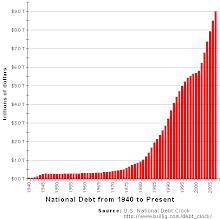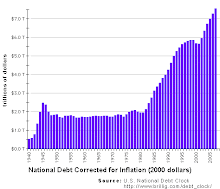Monday, March 3, 2008
The Economic Perspective on Costs
Economists also have a different perspective on costs than many other people. Most people consider the cost of something to be the amount of money paid to acquire it. Economists prefer to consider opportunity costs. The opportunity cost of something is what is sacrificed or foregone when a choice is made.
Most people consider the costs of attending college to be the amounts paid for tuition, books, and similar expenses. When economists consider the costs of college, however, they think about the opportunity costs. The opportunity costs of college include everything that is foregone, sacrificed, or given up in order to attend college. The monies paid for tuition and books are certainly given up when one goes to college. Yet there are many other sacrifices, too. The time devoted to college could have been spent at a job. Whatever income could have been earned at that job is also given up when one attends college full-time.
If the annual cost of tuition and books is $20,000 and a person quits a job that pays $30,000 per year in order to attend college, then economists would say the true costs, or opportunity costs, are $50,000 rather than the $20,000 most people consider.
A similar argument can be made about the costs of war. Most people think about the bombs, missiles, and other munitions used. It is also expensive to transport troops and equipment to the battleground, particularly if it is halfway around the world. When calculating the costs of war, however, economists also include the sacrifice of what else military personnel could do with their time and effort. This is especially relevant to the men and women who lose their lives and reservists who, in the absence of war, would be productive in the civilian sector of the economy.
Most people consider the costs of attending college to be the amounts paid for tuition, books, and similar expenses. When economists consider the costs of college, however, they think about the opportunity costs. The opportunity costs of college include everything that is foregone, sacrificed, or given up in order to attend college. The monies paid for tuition and books are certainly given up when one goes to college. Yet there are many other sacrifices, too. The time devoted to college could have been spent at a job. Whatever income could have been earned at that job is also given up when one attends college full-time.
If the annual cost of tuition and books is $20,000 and a person quits a job that pays $30,000 per year in order to attend college, then economists would say the true costs, or opportunity costs, are $50,000 rather than the $20,000 most people consider.
A similar argument can be made about the costs of war. Most people think about the bombs, missiles, and other munitions used. It is also expensive to transport troops and equipment to the battleground, particularly if it is halfway around the world. When calculating the costs of war, however, economists also include the sacrifice of what else military personnel could do with their time and effort. This is especially relevant to the men and women who lose their lives and reservists who, in the absence of war, would be productive in the civilian sector of the economy.
Subscribe to:
Post Comments (Atom)






No comments:
Post a Comment